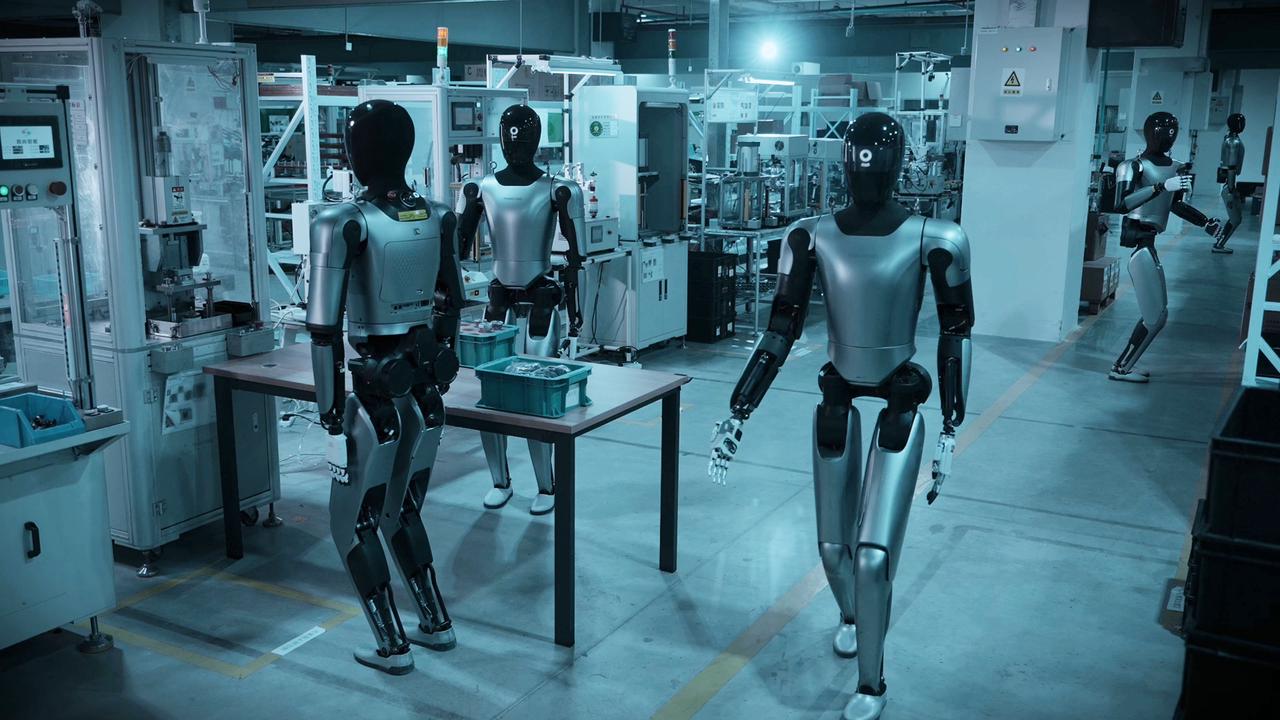MagicLab Secures RMB 150 Million Angel Round Financing, Mass Production to Begin in 2025
Recently, MagicLab, a company specializing in embodied AI robotics, completed a RMB 150 million angel round financing, led by Zhuichuang Venture Capital with participation from Yipu Fund. Following this funding round, MagicLab plans to expand talent recruitment, continue investing in core embodied AI technologies and full-system humanoid robot R&D, accelerate mass production and broaden industrial and commercial applications.
Focusing on In-House Developed Core Technologies, Mass Production to Commence in 2025
Founded in January 2024, MagicLab specializes in the development and application of general-purpose robotics and embodied AI technologies. Its product lineup includes humanoid robots and bionic quadrupeds, designed for industrial, commercial and household application. The company currently employs around 100 staff members, with over 80% dedicated to R&D. More than half of its engineers hold master’s degrees or higher, and the core team has extensive experience in robotics and AI algorithm development, with many members graduating from leading universities such as Tsinghua University, Shanghai Jiao Tong University, Zhejiang University, Beihang University and New York University.

According to Wu Changzheng, President of MagicLab: “MagicLab has established a comprehensive technological matrix covering the ‘brain, cerebellum, and limbs’ of robotics, along with sustainable R&D capabilities. With the new funding, we will further strengthen the development of core algorithms, making breakthroughs in motion control, perception, and embodied models. At the same time, we will enhance supply chain efficiency and scale up our humanoid robot manufacturing capabilities. Our goal is to deliver stable, reliable, and commercially viable mass-production humanoid robots at a controlled cost.”
In Q1 2025, MagicLab will officially launch its next-generation MagicBot humanoid robot. The company has already established large-scale manufacturing capacity and expects to deliver several hundred units of the mass-production MagicBot within 2025, with shipments projected to reach the thousands in 2026.
In addition to complete humanoid robots, MagicLab has also developed in-house capabilities for upstream core components, including joint modules, dexterous hands, reducers, actuators and controllers. These self-developed components are highly optimized for integration with MagicBot, significantly reducing production costs and laying the foundation for scalable mass production.
The Era of Scalable Applications is Approaching, MagicLab Accelerates Deployment in Industrial and Commercial Service
With leading companies such as Tesla and Figure AI actively investing in humanoid robotics, the technology is rapidly advancing toward real-world applications. Its potential in manufacturing and commercial service sectors has gained widespread recognition, and the industry eagerly anticipates the large-scale deployment of humanoid robots.
Lei Ming, Founding Partner of Zhuichuang Venture Capital, commented:"Humanoid robots will soon become essential intelligent terminals across industrial, commercial, and household domains, assisting or even replacing human labor, creating a multi-trillion-dollar blue ocean market. The humanoid robotics industry is approaching an inflection point. MagicLab’s robot products are already among the global leaders, and with their rich application scenarios, they can accelerate the transition from laboratory research to practical deployment. In the future, we look forward to collaborating with MagicLab to explore the limitless possibilities of humanoid robots in various applications."
Humanoid robots, with their high degrees of freedom and humanlike operations, are highly adaptable to complex environments. They are particularly suited for factories in 3C electronics, home appliances, and other sectors requiring frequent production line switches, helping manufacturers increase line flexibility, reduce deployment costs, and respond agilely to market changes.
On December 2, MagicLab released a video demonstrating its humanoid robot MagicBot entering factory production lines for training tasks. Moving forward, MagicLab will continue to enhance MagicBot’s capabilities in performing complex operational tasks, aiming to achieve the proficiency of a “skilled worker” in industrial settings.
In addition, MagicLab is exploring applications in commercial service. The company has deployed MagicBot humanoid robots and quadruped robots in select home appliance retail stores to conduct training for tasks such as welcoming guests and guiding customers.
In early December, MagicLab signed a partnership agreement with Tianyi Digital Life, a subsidiary of China Telecom, becoming a robotics ecosystem partner in China Telecom’s “Better Home Robot Ecosystem Co-Construction Program”. The collaboration aims to jointly explore innovative development and real-world applications of home service robotics technologies.
In-House Developed MagicNet Multi-Robot Coordination System Enhances Maturity of Humanoid Robots for B2B Applications
Since its founding, MagicLab has focused on real-world application scenarios to deeply explore product requirements. In previously released factory operation videos, multiple MagicBot humanoid robots were shown performing product inspection, material handling, parts picking and barcode scanning on production lines, achieving partial multi-robot collaboration in certain scenarios.
Wu Changzheng stated that while continuously improving the intelligence of individual humanoid robots, MagicLab also emphasizes the development of multi-robot collaboration capabilities.
To this end, MagicLab is developing the MagicNet multi-robot coordination system, designed to enable rapid deployment and management of multiple humanoid robots and enhance overall collaboration efficiency. For example, in a factory setting, MagicNet can collect and consolidate environmental perception data from multiple robots, share multi-scenario maps, and execute task planning and scheduling to maximize production efficiency. The system also supports customized development for specific workstations in the factory.
MagicNet incorporates fault-tolerant mechanisms for multi-robot collaboration. If one robot experiences a malfunction, other robots can take over or have tasks reallocated according to predefined rules. Additionally, MagicNet will support wireless integration with factory MES systems and automation equipment, enabling functional collaboration and data sharing between humanoid robots and existing factory machinery.
Currently, MagicLab has integrated core software and hardware R&D, supply chain management, manufacturing, and application deployment across the entire humanoid robot industry chain. With these capabilities, MagicBot is poised to enter large-scale mass production.

